Andrea Anaya works with passion
Andrea Anaya is the Program Manager for Smile Train Central America. Below, she tells us about her start at Smile Train, the objectives and goals in the region for 2021, her favorite memories of the organization and much more.
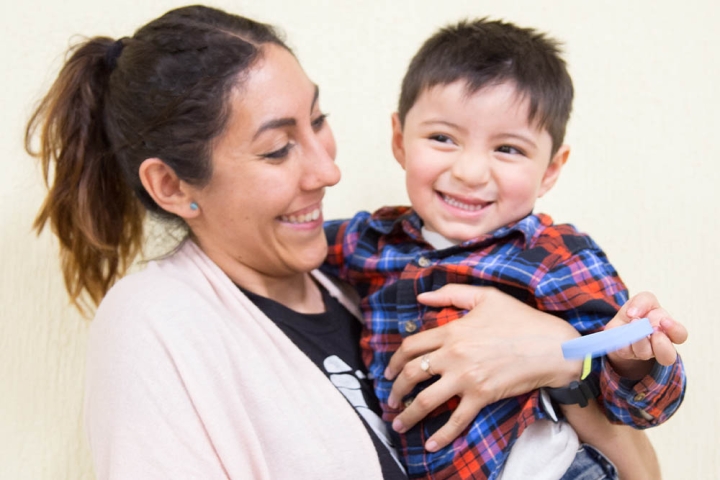
How did you meet Smile Train?
Smile Train found me in 2016. I had been working in the non-profit sector for a long time, I had worked in other foundations, such as organizations for the rights of women and people in street situations and traffic situations. I was a bit between jobs when I received an email from a dear friend letting me know that an organization called Smile Train was looking for someone and that he believed the position would fit my profile. Actually since I met Smile Train I fell in love with this cause and this working model. I felt a bit like it was destiny that had brought me to this point for years. And here I am.
What does your job consist of?
I am a program manager for Central America, which means that I follow up with Smile Train partners in Guatemala, El Salvador, Honduras, Nicaragua and Panama. We hope that very soon also in Costa Rica and Belize. My role is to work hand in hand with our partners in the region to constantly seek opportunities to grow, reach more patients, be able to offer a better level of care and that Smile Train's support can reach where and how it is most needed, focusing efforts according to the social and economic circumstances of each of these countries so that together we can continue to change the world one smile at a time. I also have to seek to create new alliances. And another part that I love about my job is the special projects area, in which we shape and implement innovative projects in training, technology, safety, quality, treatment strategies, etc.
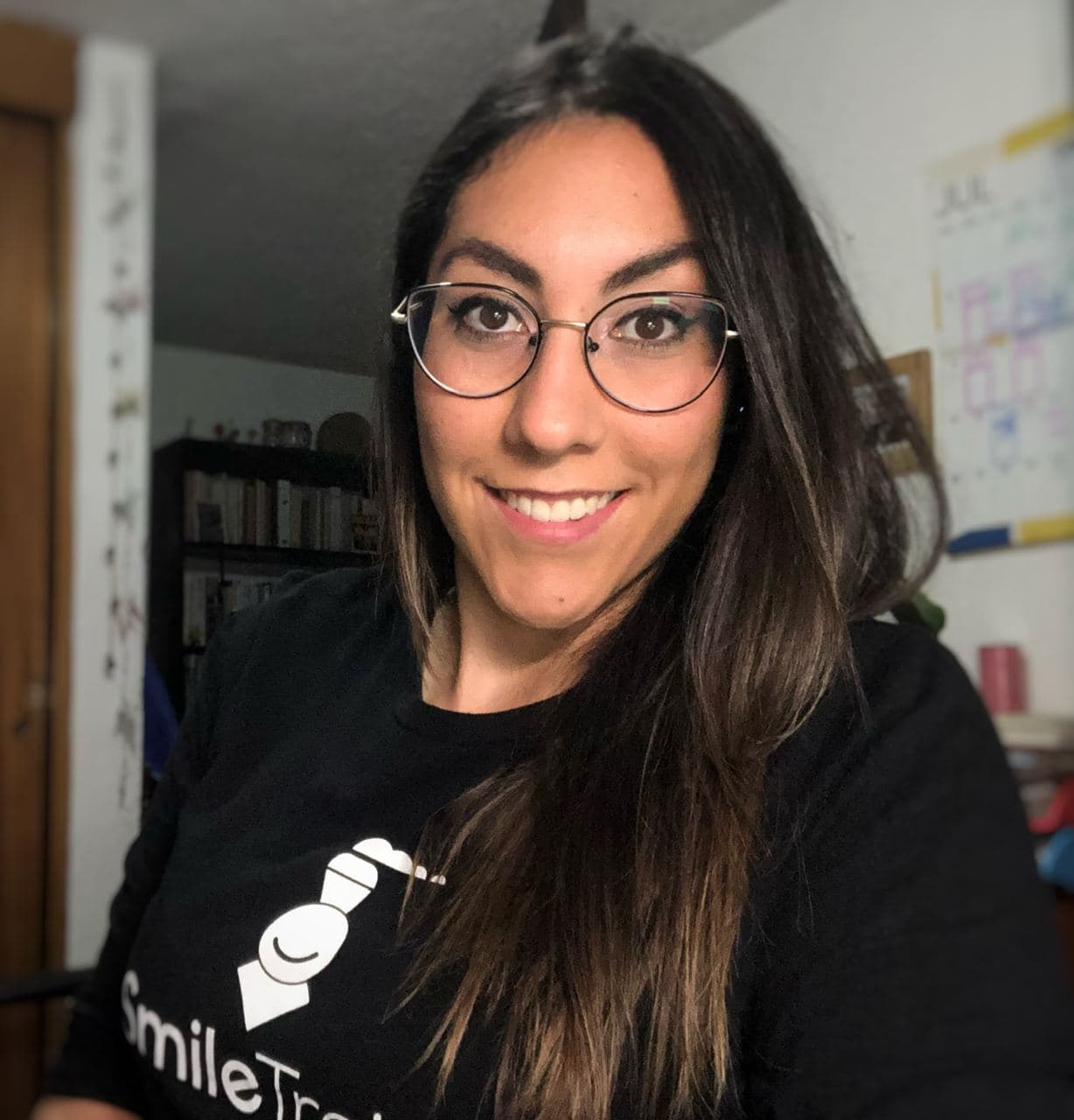
How does your professional training (culture management) help in the mission of Smile Train?
There is a story that I like to tell to explain this… Once, in the class of anthropologist Margaret Mead a student asked her what she considered to be the first sign of civilization in a culture. The student expected Mead to answer something related to the use of tools or materials. But no. Margaret Mead responded that the first sign of civilization in an ancient culture was a scarred and broken femur. Sounds strange doesn't it? But it's true. In the animal kingdom, if you break your leg, you die. Because you can no longer hunt your food or run from danger. A scarred broken femur is evidence that someone had time to stay with that person, cared for their wound, kept it safe, and fed and cared for it until it recovered. In that sense, "helping someone through hardship is where civilization begins," Mead put it. One thinks that culture is art and education, but in reality culture is everything that is not nature. The management of culture is also the provision of care for the other and the fight for human rights. That is why one of the areas of specialization in Cultural Management is the management of non-profit organizations. And that's the reason I decided to dedicate myself to this. I am also currently doing an online diploma in children's rights from the University of Geneva ... the truth is that learning never ends throughout life and I love that!
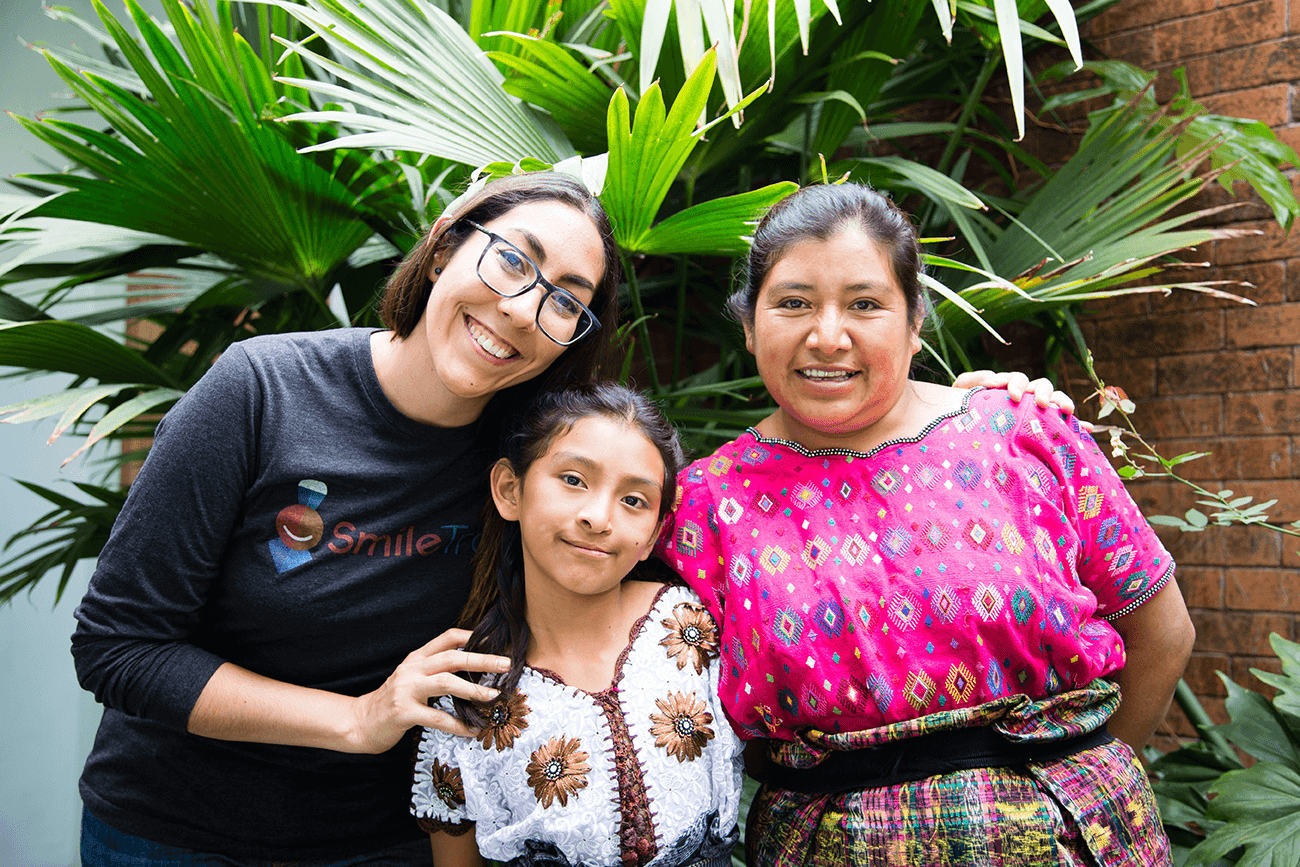
What do you like the most about Smile Train?
What do you like the most about Smile Train? It is difficult to choose just one thing. I love our cause, being able to help change the life not only of a patient but of his entire family, and even his community, and to do it neither more nor less than creating SMILES ... Doesn't that sound magical? I love our work model, because investing in local talent really makes a difference at every level, from the quality of treatment patients receive to the long-term financial impact it has. That makes me incredibly proud to work at Smile Train, because it is a coherent organization, with integrity, empathy, and with a joyfully tangible impact. I love our team, because we really are an international family, and each and every one of my colleagues at Smile Train are people I love and admire very much, both professionally and personally. And finally, I love being able to meet so many wonderful people, our partners, who are extremely talented people with huge hearts, dedicated to service with so much love and passion ... and our patients and their families, from whom we learn so much every day through their courage, resilience and attitude.
Why do you think there are so many myths around LPH? What can we do to combat it?
I think it is simply a lack of information. When human beings do not have complete or accurate information, we fill in those gaps with myths and legends. But that causes stigmas to be created, which affect patients and their families at a psycho-social level, with situations such as bullying, social exclusion and the anguish of thinking that there is no remedy. That is a large part of our work, that the general public has access to information about this condition and its treatment, that its incidence, its importance and its solution be known. What we can do, and we are doing, is to seek to share, from our trenches and through our partners, assertive and complete information about what LPH is, why it happens, how it should be treated, what parents should do when they find out that your baby will be born with a cleft, why shouldn't the term “cleft” be used, what misconceptions we have about this condition, and so on. From word of mouth to mass media. And invite health institutions to join these awareness efforts.
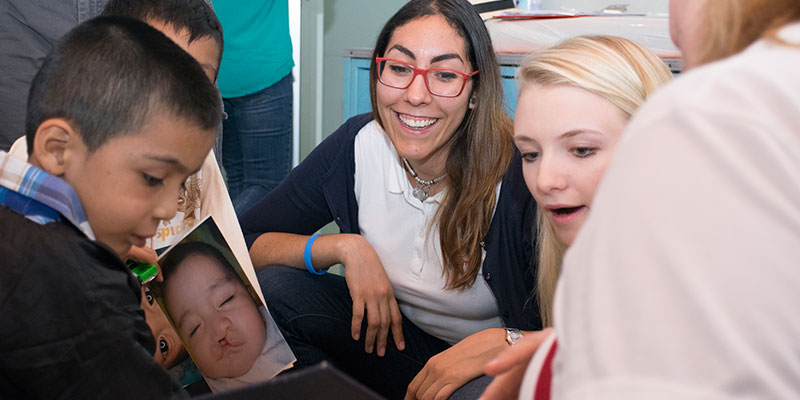
How is the Central American region and what are the objectives for this 2021?
Currently in Central America we are in 5 countries, working in 10 hospitals, through 9 active partners. We are performing an average of 450 surgeries per year, in addition to our presurgical orthopedic, orthodontic, speech therapy and nutrition programs. We are creating ongoing training efforts for both new surgeons (seeking to interest new Plastic and Maxillofacial Surgery residents) and specialty surgeons (offering one-on-one trainings with some of the best surgeons in the region), as well as specialists from other areas. During the COVID-19 pandemic, we have adapted our programs to continue offering speech therapy through telecare, and offer online training for nutritionists, orthodontists, and others. 2021 will be a very interesting year, because we continue to adapt to the new normal by implementing new security and remote work protocols, and we continue to expand our reach. A great year is coming, I am sure that with all that the many challenges of this 2020 have taught us, we are stronger than ever. We look forward to starting new partnerships in Belize and Costa Rica, training new staff for speech treatment, opening new orthodontic programs, and continuing to invest in the safety and quality of our treatments.
What does this phrase: "Change the world one smile at a time" mean to you?
For me, changing the world one smile at a time means putting our heart and soul in each of our patients, in each of our partners, in each of our projects, as if each of them were the only one. And one by one, they join together to create the great impact that Smile Train has on a global level. We do not work in series, but by hand, and in the community.
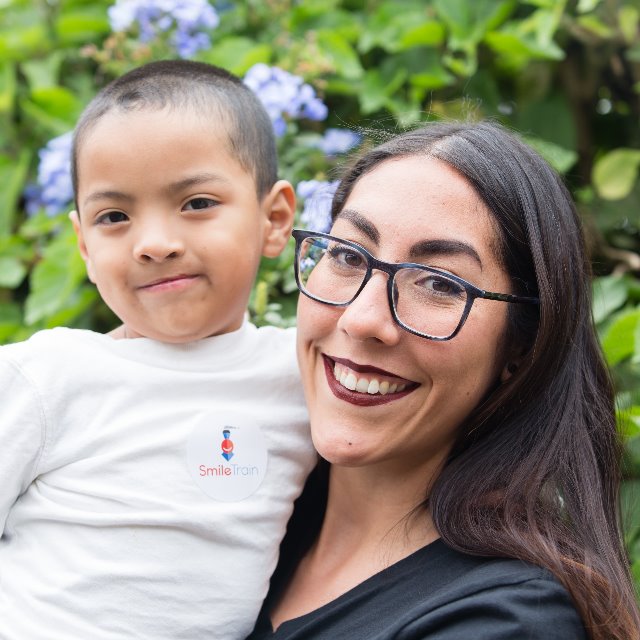
What do you do every day to create smiles forever?
Love what I do and do what I love. I believe that the first ingredient for your work to have an impact is to do it with the taste and passion you deserve. I think I am very fortunate to be able to agree on this vision with my team and my organization, because together we make this possible every day.
Any anecdotes with Smile Train that makes you smile?
I believe the anecdotes that always make me smile are from when we make visits to patients' homes. They always welcome us with great affection and open arms, and it is beautiful to see the impact that quality and follow-up treatment can have on children and their families. On some occasion we went to visit a family in the rural village of Patzún, Guatemala. Various members of the family have been born with LPH and, for generations, all have been cared for by our local partner, an excellent surgeon. As a surprise they welcomed us with freshly cooked food, all handmade, straight from the comal, delicious! We lived together for a long time, they told us their story, we played jumping rope… it was a very beautiful afternoon.
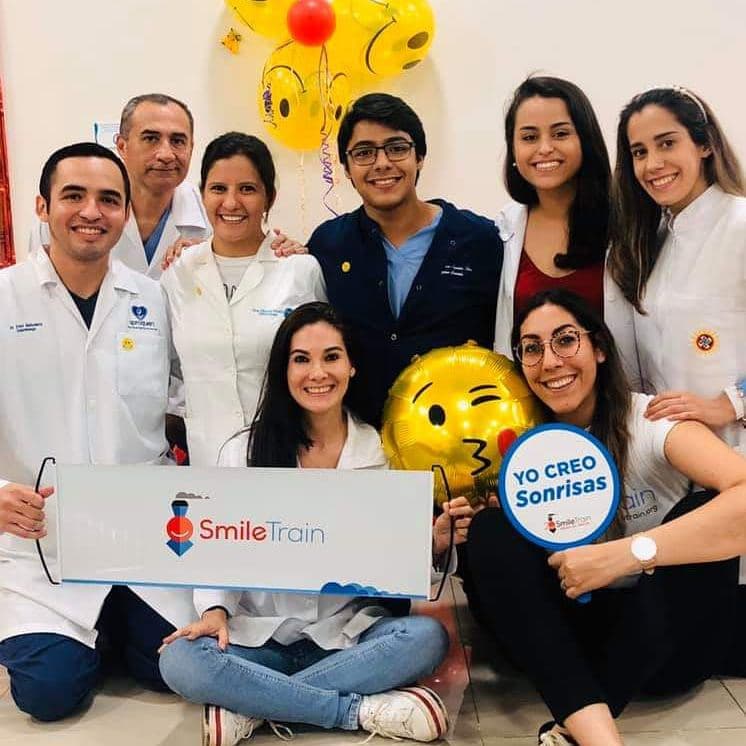
Help us increase the access to cleft care by providing education and training opportunities for medical professionals in Latin America and around the world.
